July 8, 2021 •
Minnesota Special Session Adjourns Sine Die
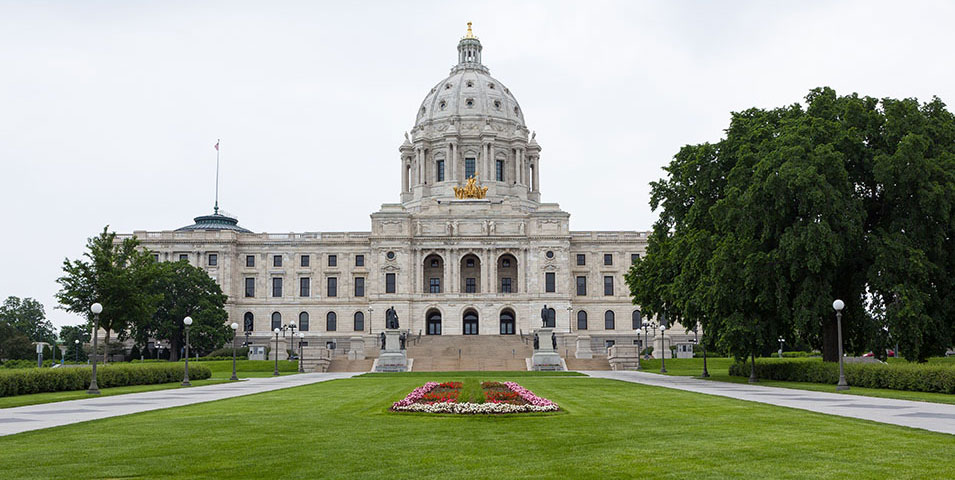
Minnesota Capitol Building
The first special session adjourned sine die on July 7 after Minnesota lawmakers finalized the budget and passed several omnibus bills. The omnibus tax bill passed during the special session included a lobbying ban for legislators. House File 9 prohibits […]
The first special session adjourned sine die on July 7 after Minnesota lawmakers finalized the budget and passed several omnibus bills.
The omnibus tax bill passed during the special session included a lobbying ban for legislators.
House File 9 prohibits a sitting member of the Legislature from accepting employment with or otherwise receiving compensation from lobbying firms and government affairs businesses if the member’s job duties include lobbying or providing direct or indirect consulting, advice, or administrative support for lobbying efforts.
The bill is effective January 3, 2023.
May 24, 2021 •
Vermont Legislature Adjourns Sine Die
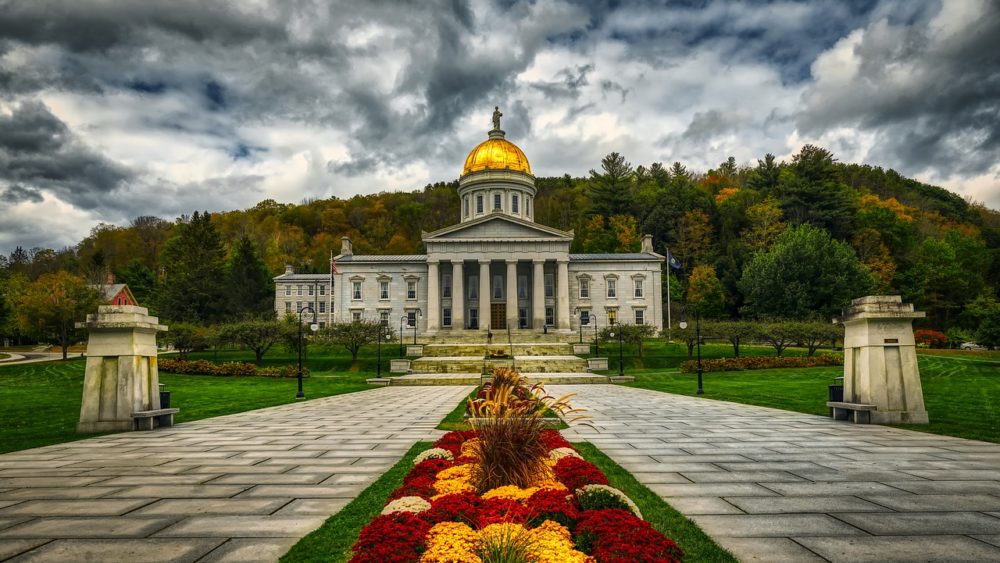
Vermont Capitol Building
The Vermont General Assembly adjourned sine die on May 21. Due to COVID-19 restrictions, the 2021 legislative session was conducted remotely. During the session, lawmakers failed to pass proposed ethics bills including House Bill 64 prohibiting gifts to legislators from […]
The Vermont General Assembly adjourned sine die on May 21.
Due to COVID-19 restrictions, the 2021 legislative session was conducted remotely.
During the session, lawmakers failed to pass proposed ethics bills including House Bill 64 prohibiting gifts to legislators from lobbying entities.
Lawmakers are expecting to lift all COVID-19 restrictions by the summer and resume an in-person legislative session for 2022.
May 20, 2021 •
Iowa Adjourns Sine Die
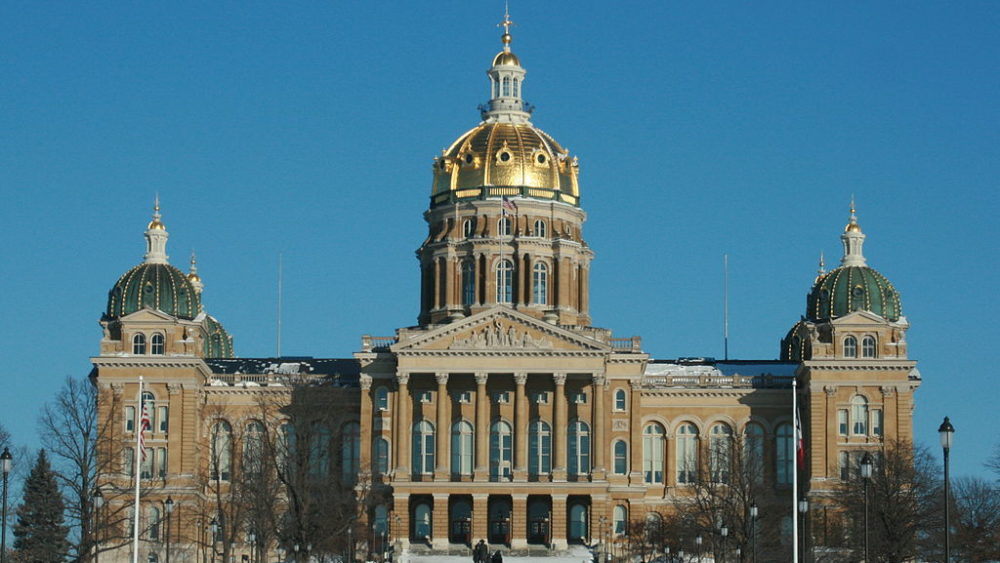
Iowa Capitol Building - Ashton B Crew
The Iowa Legislature adjourned sine die May 19 after being in session for 129 days. Lawmakers remained in session past their original adjournment date of April 30 to reach a consensus on a tax cut package. Other legislation passed during […]
The Iowa Legislature adjourned sine die May 19 after being in session for 129 days.
Lawmakers remained in session past their original adjournment date of April 30 to reach a consensus on a tax cut package.
Other legislation passed during the session included a bill banning cities, counties, and school districts from implementing mask mandates, which Gov. Kim Reynolds signed into law less than an hour after the session adjourned at 11:45 PM.
Lawmakers also passed a bill reducing the state’s early voting period and closing the polls an hour earlier on election day for all future elections.
May 19, 2021 •
Alabama’s 2021 Legislative Session Comes to End
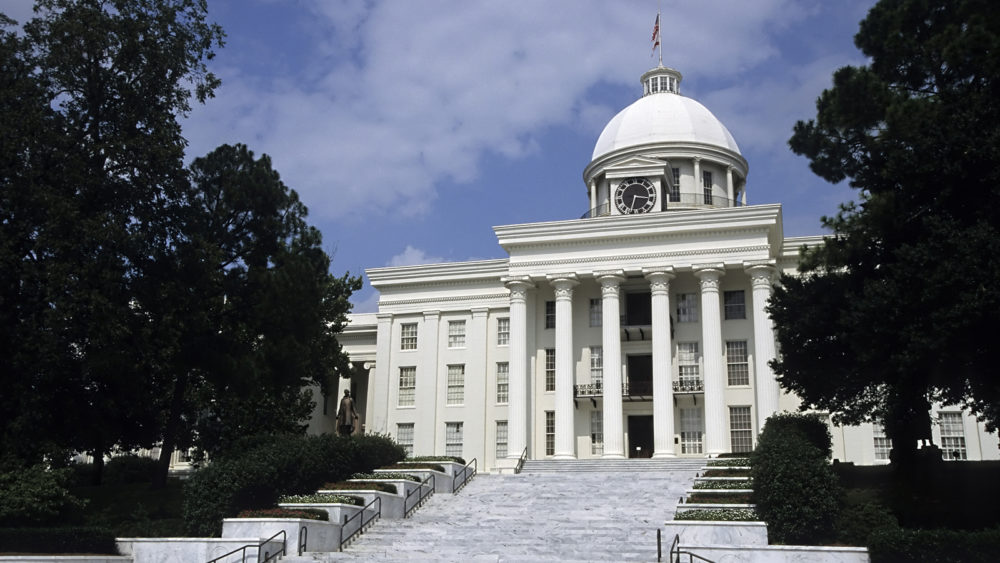
Alabama State Capitol Building
The Alabama Legislature adjourned sine die on May 17. Among the measures passed were the $2.4 billion spending plan for the next fiscal year, legalization of medical marijuana, and a ban on curbside voting. Additionally, a bill requiring all campaign […]
The Alabama Legislature adjourned sine die on May 17.
Among the measures passed were the $2.4 billion spending plan for the next fiscal year, legalization of medical marijuana, and a ban on curbside voting.
Additionally, a bill requiring all campaign finance reports to be filed electronically was passed earlier in the session.
This requirement goes into effect in August 2023.
May 13, 2021 •
Idaho Senate Adjourns, House to Recess
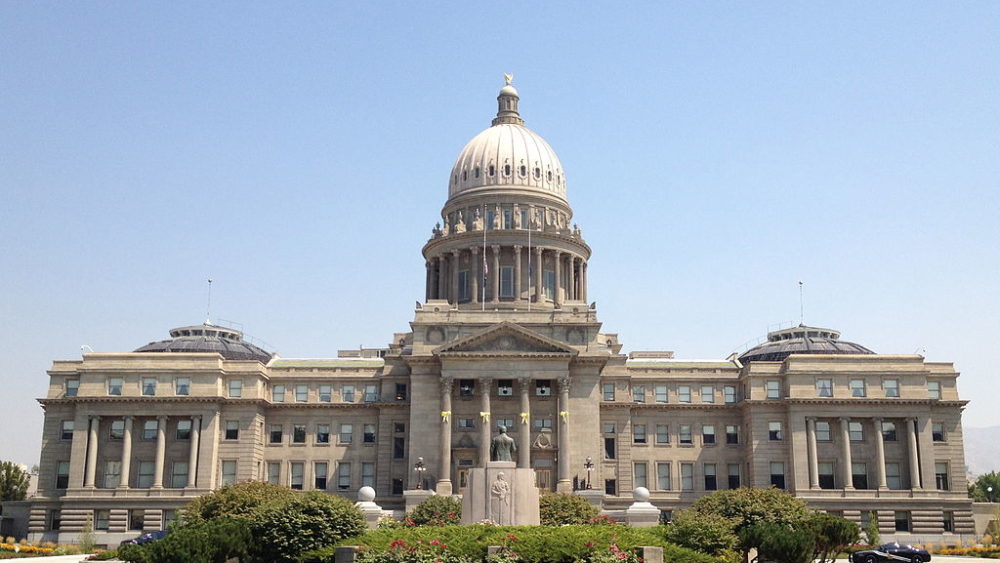
Idaho Capitol Building - JSquish
On May 12, the Idaho Senate adjourned and the House of Representatives voted to recess ending the longest legislative session in Idaho’s history. Passed legislation included campaign finance bills to prohibit foreign political contributions, enable candidate contribution transfers from one […]
On May 12, the Idaho Senate adjourned and the House of Representatives voted to recess ending the longest legislative session in Idaho’s history.
Passed legislation included campaign finance bills to prohibit foreign political contributions, enable candidate contribution transfers from one seat to another, and require statement of expenditures to include the identity of the candidate or measure passed.
Lawmakers also passed a bill allowing the Legislature to convene in special session.

Utah Capitol Building - Jkinsocal
The 2021 session of the Utah Legislature adjourned sine die on March 5 after being in session since January 19. During the session, lawmakers introduced legislation relating to PAC reporting requirements and amending provisions of the state procurement code. Utah […]
The 2021 session of the Utah Legislature adjourned sine die on March 5 after being in session since January 19.
During the session, lawmakers introduced legislation relating to PAC reporting requirements and amending provisions of the state procurement code.
Utah House Bill 310 relating to PACs establishes that a PAC must report each contribution and expenditure to the Lieutenant Governor’s Office within 31 days after the contribution is received or the expenditure is made.
Under the bill, if the exact amount of an expenditure cannot be determined before the deadline to report the expenditure, the PAC must report a reasonable estimate of the amount of the expenditure before the deadline and report the exact amount of the expenditure.
House Bill 310 was introduced February 4 but did not pass during the session.
In relation to procurement code amendments, Utah Senate Bill 188 defines the term contract price as the price under an existing contract between a procurement unit and a contractor and specifies that it does not include a proposed price or cost contained in a solicitation response or any other bid, proposal, or offer submitted by a person other than the contractor under the existing contract.
Under Senate Bill 188, a contractor under a multiple award contract resulting from a bidding process may not lower the contract price unless the contractor’s solicitation response led to the award was the lowest price solicitation response.
Senate Bill 188 is currently being drafted for the enrolling process to be sent to Gov. Spencer Cox’s desk. Gov. Cox has until March 25 to sign or veto legislation, or it will become law without signature.
January 22, 2021 •
Idaho House Approves Plan Allowing Lawmakers to Call Special Sessions

Idaho Capitol Building - JSquish
The Idaho House passed a constitutional amendment allowing the Legislature to call itself into a special session. The legislation stems from lawmaker dissatisfaction with restrictions Gov. Brad Little put in place last March. Specifically, those to reduce coronavirus infections and […]
The Idaho House passed a constitutional amendment allowing the Legislature to call itself into a special session.
The legislation stems from lawmaker dissatisfaction with restrictions Gov. Brad Little put in place last March.
Specifically, those to reduce coronavirus infections and deaths.
The Legislature had adjourned for the year by then and couldn’t call itself back into session.
Idaho is one of 14 states where only the governor can call a special legislative session.
The legislation must now pass the Senate with a two-thirds vote.
It, then, would go to voters in the November 2022 general election, where a simple majority is needed for approval.
If voters approve it in 2022, lawmakers could call themselves back into session if 60% of members in each the House and Senate agree.
January 4, 2021 •
Wisconsin Lawmakers Adjourn Special Session
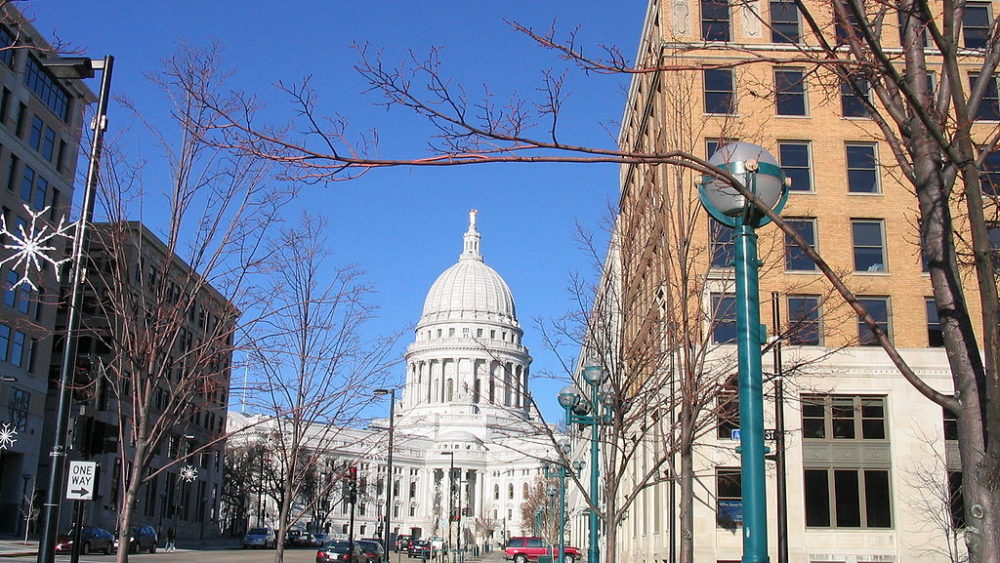
Wisconsin Capitol - photo by Dori
Wisconsin Lawmakers ended the third special session on December 22, with a final adjournment pursuant to Senate Joint Resolution 1. The session was called by Gov. Tony Evers and began on August 31, 2020. Wisconsin law does not require lawmakers […]
Wisconsin Lawmakers ended the third special session on December 22, with a final adjournment pursuant to Senate Joint Resolution 1.
The session was called by Gov. Tony Evers and began on August 31, 2020.
Wisconsin law does not require lawmakers to take any action during a special session and none was taken.
The constitution prohibits either chamber from adjourning without consent of the other for more than 3 days.
Lawmakers then convened and immediately adjourned every Tuesday and Thursday without taking any action until the final adjournment.
October 29, 2020 •
American Samoa Ends Special Session After Passing Funding Gap Appropriations Bill
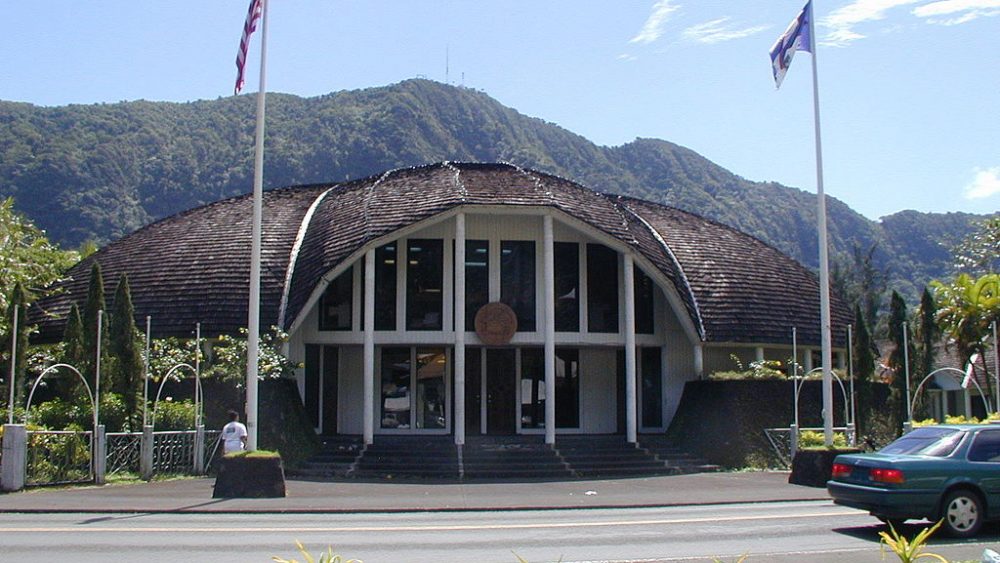
American Samoa Legislature - by NOAA
The Senate and House gave final approval to the House version of a bill enacting a temporary funding gap appropriation for the government before ending the special session. The House version of the bill has been enrolled and transmitted to […]
The Senate and House gave final approval to the House version of a bill enacting a temporary funding gap appropriation for the government before ending the special session.
The House version of the bill has been enrolled and transmitted to Gov. Lolo Matalasi Moliga for his review and consideration.
The bill also provides consolidated appropriations and temporary funding to continue government operations until action on regular appropriations are completed.
October 9, 2020 •
Hawaii Senate Confirms Judicial Appointments, Adjourns Special Session
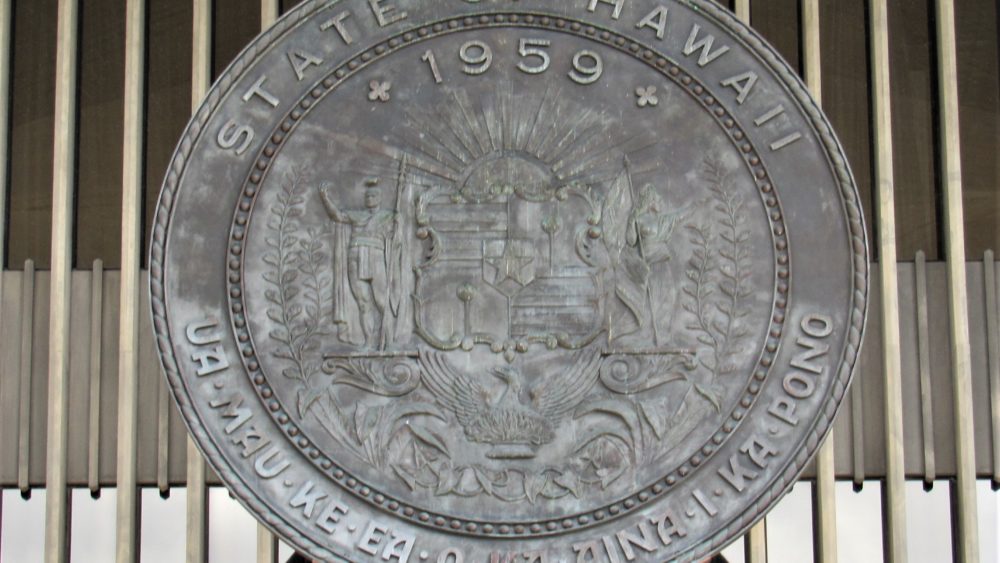
State of Hawaii
The Hawaii State Senate confirmed eight judicial appointments on October 6 in its first special session of 2020. First Circuit Court Judge Karen Nakasone was appointed to the Intermediate Court of Appeals. Karin Holma, Tracy Fukui, Bryant Zane, and Andrew […]
The Hawaii State Senate confirmed eight judicial appointments on October 6 in its first special session of 2020.
First Circuit Court Judge Karen Nakasone was appointed to the Intermediate Court of Appeals. Karin Holma, Tracy Fukui, Bryant Zane, and Andrew Park were appointed to the District Court of the First Circuit. Additionally, Courtney Naso, Elizabeth Paek-Harris, and Thomas Haia were appointed to the District Family Court of the First Circuit.
Sen. Karl Rhoads, the chair of the Senate Judiciary Committee, said the pandemic had caused a backlog in the courts and the appointees are eager to begin working.
The session then adjourned sine die October 6 after the Senate confirmed the appointments.
A lobbyist and employer activity report will be due within 30 days of adjournment sine die of the special session on November 5 for expenditures and contributions relating to legislative action considered during the special session.
October 6, 2020 •
Extended Legislative Session in Mississippi Comes to an End
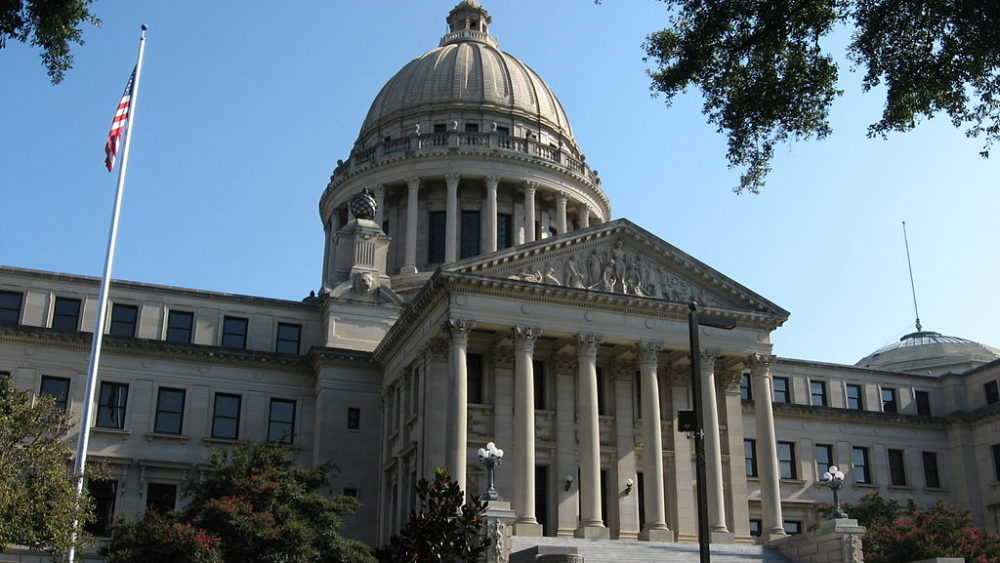
Mississippi State Capitol - by Ken Lund
The Mississippi Legislature met for the final time in the extended 2020 session on October 2 after passing several measures related to COVID-19 and the distribution of CARES Act funding. The session will officially end when the Legislature adjourns sine […]
The Mississippi Legislature met for the final time in the extended 2020 session on October 2 after passing several measures related to COVID-19 and the distribution of CARES Act funding.
The session will officially end when the Legislature adjourns sine die on October 10.
This does affect lobbyist dates reporting.
An end-of-session report is due on October 20, 10 days following adjournment sine die of the Legislature.
October 1, 2020 •
Vermont Legislature Adjourns Sine Die

Vermont Capitol Building
The Vermont General Assembly adjourned sine die on September 25. The Legislature normally adjourns in May but was extended due to the COVID-19 pandemic. Lawmakers adjusted to the pandemic by holding remote online meetings. During the remote legislative session, lawmakers […]
The Vermont General Assembly adjourned sine die on September 25.
The Legislature normally adjourns in May but was extended due to the COVID-19 pandemic.
Lawmakers adjusted to the pandemic by holding remote online meetings.
During the remote legislative session, lawmakers were able to pass bills relating to the 2021 fiscal year budget, police reform, and a land use reform.
September 1, 2020 •
Wisconsin Lawmakers Convene and Leave Session Open

Wisconsin Capitol - photo by Dori
Wisconsin lawmakers convened the special session called by Gov. Tony Evers on August 31. The session met for less than a minute and adjourned until September 3, in what is termed a skeletal session. No Senate Republicans were present for […]
Wisconsin lawmakers convened the special session called by Gov. Tony Evers on August 31.
The session met for less than a minute and adjourned until September 3, in what is termed a skeletal session.
No Senate Republicans were present for the session.
Wisconsin law does not require lawmakers to take any action during a special session.
The session is adjourned for three days to comply with the constitutional requirement that neither house may adjourn without the consent of the other for more than 3 days.
They may continue in this manner until both houses agree on a course of action or to adjourn sine die.
August 17, 2020 •
Nebraska Legislative Session Adjourned
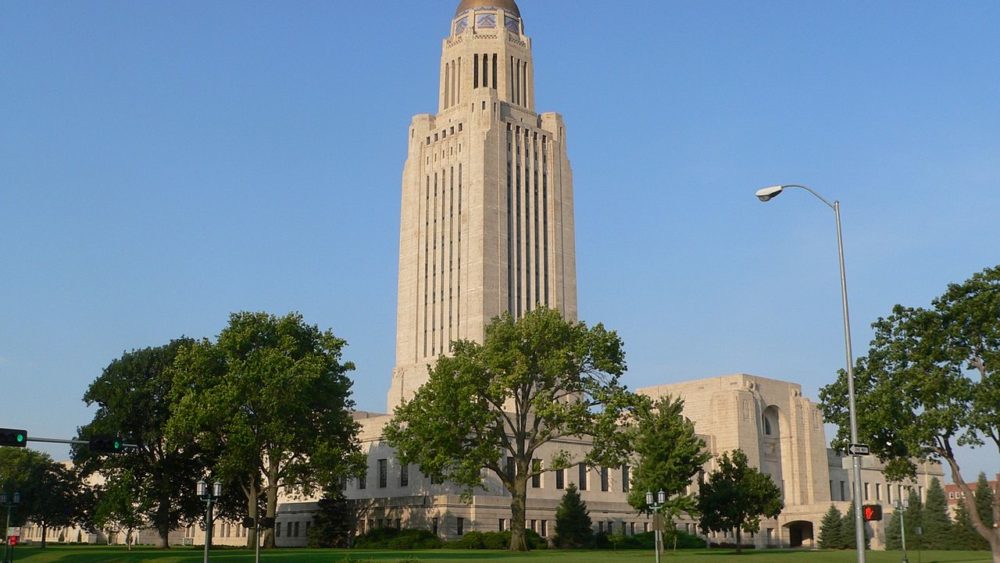
Nebraska Capitol Building
The second session of the 106th Nebraska Legislature adjourned sine die on August 13 after 60 legislative days of a session interrupted by COVID-19. Speaker Jim Scheer suspended the session in mid-March in response to growing safety concerns regarding the […]
The second session of the 106th Nebraska Legislature adjourned sine die on August 13 after 60 legislative days of a session interrupted by COVID-19.
Speaker Jim Scheer suspended the session in mid-March in response to growing safety concerns regarding the global pandemic. After calling lawmakers back into session for three days in late March for the limited purpose of approving emergency funding to combat the pandemic, he suspended the session again.
Senators reconvened July 20 and finished the final 17 days of session in a changed physical environment of plastic barriers and physical distancing guidelines to limit contact between senators, staff, and the media.
The delaying of the session affected lobbyist reporting due dates. Any lobbyists or principals who received or expended more than $5,000 for lobbying purposes during the session must file special reports on September 15, 2020. Additionally, the lobbyist statement of activity is due on September 27, which signifies 45 days after adjournment sine die of the session.
Lawmakers passed 285 bills during the session, including measures to expand access to broadband Internet in rural areas, improve oversight of the state’s Youth Rehabilitation and Treatment Centers and provide a tax exclusion for military retirement benefit pay.
Scheer is among six senators who are leaving the Legislature due to term limits. The others are Lincoln Sen. Kate Bolz, Omaha Sen. Ernie Chambers, Bellevue Sen. Sue Crawford, Omaha Sen. Sara Howard and Omaha Sen. Rick Kolowski.
Chambers, whose legislative career will stand as the longest in state history, was first elected to the Legislature in 1970. He left office in 2008 due to term limits but returned in 2012.
The first session of the 107th Legislature is scheduled to convene on January 6, 2021.
State and Federal Communications, Inc. provides research and consulting services for government relations professionals on lobbying laws, procurement lobbying laws, political contribution laws in the United States and Canada. Learn more by visiting stateandfed.com.

